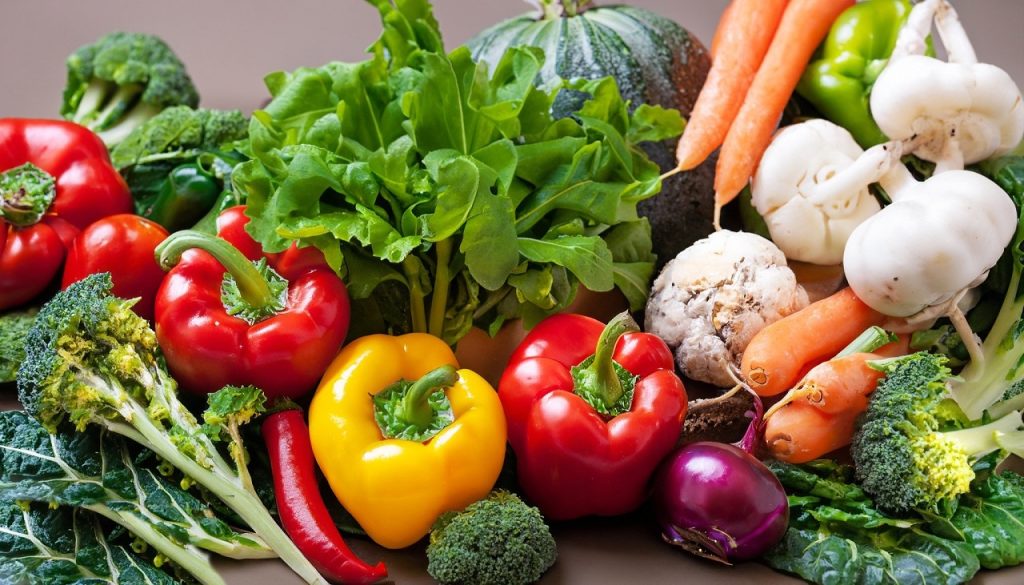In recent years, there has been a surge in the popularity of plant-based diets, with more and more people embracing the idea of adopting a vegetarian lifestyle. Proponents tout numerous health benefits associated with this shift, such as weight loss, improved heart health, and reduced risk of chronic diseases like diabetes and certain cancers. This article aims to explore the power of plant-based eating by delving into the plethora of nutrients that can be obtained through a well-balanced vegetarian diet. By uncovering these hidden gems within plants, we hope to unleash the true potential and remarkable advantages that come from embracing a nutrient-rich vegetarian lifestyle. Prepare to discover just how transformative incorporating more plants into your diet can be for both your body and overall well-being.
The Nutritional Benefits of Plant-Based Proteins
Nutritional Benefits of Plant-Based Proteins
A vegetarian diet rich in plant-based proteins offers numerous health benefits.
- Promotes Heart Health: Consuming plant-based proteins, such as legumes and nuts, can lower the risk of heart disease. These foods are low in saturated fat and cholesterol, making them a more heart-friendly choice compared to animal-based proteins.
- Supports Weight Management: Plant-based protein sources tend to be lower in calories and higher in fiber compared to animal products. The high fiber content keeps you feeling fuller for longer, helping with weight management goals.
- Provides Essential Nutrients: Plant-based proteins are packed with essential nutrients like vitamins, minerals, antioxidants, and phytochemicals that promote overall wellness. For example, soybeans contain omega-3 fatty acids which have been linked to improved brain function.
By including a variety of plant-based protein sources into your diet – such as beans, lentils, tofu or tempeh – you can reap these nutritional advantages while maintaining a healthy lifestyle.
Harnessing the Power of Plant-Based Antioxidants
Plant-based antioxidants are potent compounds that help protect our cells from damage caused by harmful free radicals. These antioxidants are mainly found in abundant quantities in fruits, vegetables, nuts, and whole grains. Consuming a nutrient-rich vegetarian diet allows us to tap into the benefits of these powerful plant-based antioxidants.
- Fruits such as berries, citrus fruits, and grapes are rich in vitamin C and other antioxidants that can neutralize free radicals.
- Vegetables like spinach, kale, and broccoli contain high levels of vitamins A and C as well as other beneficial antioxidants.
- Nuts like almonds and walnuts are packed with antioxidant compounds known as polyphenols.
- Whole grains like brown rice and quinoa also contribute to our antioxidant intake by offering vitamins E and B complex along with fiber.
By incorporating a variety of plant-based foods into our diets, we can harness the power of these antioxidants to support overall health and well-being.
The Role of Fiber in a Nutrient-Rich Vegetarian Diet
A nutrient-rich vegetarian diet is not only about eliminating meat but also about incorporating high-fiber foods to ensure optimal health. Fiber plays a crucial role in maintaining digestive health by promoting regular bowel movements and preventing constipation. This essential nutrient can be found in abundance in plant-based foods such as whole grains, fruits, vegetables, legumes, and nuts.
Including fiber-rich foods in a vegetarian diet provides numerous benefits. Firstly, fiber helps control blood sugar levels by slowing down the absorption of glucose into the bloodstream. This is particularly beneficial for individuals with diabetes or those at risk of developing it. Additionally, high-fiber foods help promote feelings of fullness and satiety, which can aid weight management and prevent overeating. It’s important to note that adequate fluid intake is necessary when consuming fiber to prevent any potential discomfort or bloating.
Tips for Increasing Fiber Intake
There are simple ways to increase your daily fiber intake on a vegetarian diet:
- Choose whole grain products like oatmeal, quinoa, brown rice, and whole wheat bread instead of refined grains.
- Include a variety of fruits and vegetables with every meal.
- Incorporate legumes such as lentils, chickpeas, black beans into soups, stews, salads and main dishes 4- Snack on nuts or seeds for extra fiber throughout the day.
By following these tips and focusing on consuming high-fiber plant-based foods regularly, you can reap the benefits this essential nutrient brings while enjoying delicious meals that support your overall well-being.
Unlocking the Potential of Essential Vitamins and Minerals in Plant-Based Foods
When it comes to essential vitamins and minerals, plant-based foods are a goldmine. They offer a wide range of nutrients that can support optimal health and well-being.
Here’s why incorporating more plant-based foods into your diet is the key to unlocking their potential:
- Rich in vitamins: Plant-based foods are packed with vital vitamins like vitamin C, which boosts immune function, and vitamin A, important for healthy vision. These natural sources provide a steady supply of these nutrients without artificial additives or preservatives.
- Abundance of minerals: Plant-based diets also deliver an array of essential minerals such as iron, calcium, and potassium. Iron is crucial for delivering oxygen throughout our bodies, while calcium supports strong bones and teeth. Potassium keeps our heart functioning properly.
By embracing a vegetarian diet rich in whole fruits, vegetables, nuts, seeds, legumes, and grains, you’re giving your body the tools it needs to thrive.
Exploring the Omega-3 Fatty Acid Richness of Vegetarian Sources
When it comes to obtaining essential omega-3 fatty acids, many may assume that fish and seafood are the only sources. However, vegetarians can also enjoy a nutrient-rich diet with high omega-3 content.
- Flaxseeds: These tiny seeds are packed with alpha-linolenic acid (ALA), a type of omega-3 fatty acid. Adding ground flaxseeds to smoothies, oatmeal or baked goods is an easy way to boost your intake.
- Chia Seeds: Another excellent plant-based source of ALA, chia seeds are versatile and can be incorporated into various dishes like puddings and salads.
- Walnuts: Not only do walnuts provide a satisfying crunch to meals, but they also deliver heart-healthy fats including omega-3s.
By incorporating these vegetarian-friendly sources into your diet, you can reap the benefits of omega-3 fatty acids without compromising your dietary preferences.
Plant-Based Eating for Optimal Gut Health
A plant-based diet can do wonders for your gut health. By focusing on fruits, vegetables, whole grains, legumes, nuts, and seeds in your meals, you provide your body with an abundance of fiber. This fiber acts as a prebiotic that nourishes the beneficial bacteria in your gut.
- Improved digestion: A plant-based diet helps promote regular bowel movements and prevents constipation due to its high fiber content. Fiber adds bulk to stools and keeps everything moving smoothly through the digestive system.
- Balanced gut microbiome: The diverse range of nutrients found in plants supports a healthy balance of good bacteria in the gut. When these friendly bacteria thrive, they help prevent inflammation and support immune function.
- Reduced risk of chronic diseases: Studies have shown that eating a primarily plant-based diet is associated with lower risks of developing conditions such as heart disease and type 2 diabetes. The high levels of antioxidants found in plants also play a role by reducing oxidative stress within the body.
Incorporating more plant-based foods into your diet not only provides essential vitamins and minerals but also contributes to overall wellness by promoting optimal gut health.






